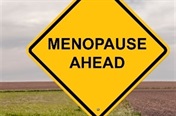
All women go through menopause – it’s a normal part of ageing that usually occurs over several years from the age of 45 onwards. The only instance in which a woman wouldn’t experience menopause is if she had her ovaries surgically removed before puberty (i.e. as a child).
In all other women, menopause (the permanent cessation of menstrual periods) either occurs naturally or when the ovaries are surgically removed (so-called medically or surgically induced menopause) or damaged.
A drop in hormone levels (especially oestrogen) bring on the symptoms of menopause.
What causes the menopause?
The ovaries make the hormones oestrogen and progesterone, which control menstruation and ovulation. Menopause happens when the ovaries no longer release an egg (oocyte) every month and menstruation stops.
As a result, production of the female hormone oestrogen falls to a very low level. Production of the other female hormone, progesterone, stops after your final menstrual period.
Levels of testosterone, which is also produced in small quantities by the ovaries, may also drop during the menopause transition. However, the ovaries continue to produce testosterone, even after menopause.
In normal circumstances, egg production stops when the number of eggs a woman was born with has been exhausted, or their quality has deteriorated.
Some women go through the menopause transition and menopause without experiencing any typical symptoms like hot flushes, night sweats and mood swings.
But not experiencing these symptoms doesn’t mean you’re immune to the effects that decreased oestrogen levels have on your body. Many of your tissues and organs are oestrogen-sensitive and will, over time, be affected by decreased levels of this important hormone. This includes your skin, bones and vaginal walls.
Natural vs. medically induced menopause
As a normal life event that designates the end of fertility, natural menopause may involve various physical and emotional changes.
Some women experience induced or surgical menopause due to a medical intervention – for example, if the ovaries are removed before they enter their natural menopause. Induced menopause can also occur if the ovaries are damaged by radiation, chemotherapy or certain drugs. In such cases, an abrupt hormonal decrease usually results in a sudden onset of menopause-related symptoms (e.g. hot flushes).
If you had induced menopause, early menopause, or went for a prolonged time without menstrual periods (for example, because of excessive exercising or dieting), you may be at a greater risk later in life for health problems such as heart disease and osteoporosis. This is because you lived for many years without the protective effects of oestrogen.
Hysterectomy and menopause
The surgical removal of the uterus is known as hysterectomy. In turn, surgical removal of the ovaries is called oophorectomy. A total hysterectomy refers to the removal of the uterus and cervix, while having a partial or sub-total hysterectomy refers to the removal of the upper part of the uterus while leaving the cervix and other organs in place.
These surgeries are performed for a variety of reasons, including uterine fibroids, endometriosis and cancer.
After a partial hysterectomy, women usually continue to produce hormones (as they still have their ovaries). They’ll therefore not experience early menopausal symptoms, unless nerves and blood supply to the ovaries have been damaged during the procedure.
Doctors have become extremely mindful of the functions of the ovaries during the last 20 years. It’s very unusual to lose your ovaries at the time of hysterectomy.
However, it’s important to know that when your gynaecologist mentions the term “oophorectomy”, it refers to removing one or both ovaries (a total hysterectomy). This has important treatment implications, as you’ll start to experience menopause symptoms within days.
Reviewed and updated by Dr Carol Thomas MBChB (UCT) FCOG (SA) MMed (O&G) (UCT), specialist gynaecologist in private practice, Cape Town, President of the South African Menopause Society and Director of the WomanSpace and iMobiMaMa. March 2017.




 Publications
Publications
 Partners
Partners












